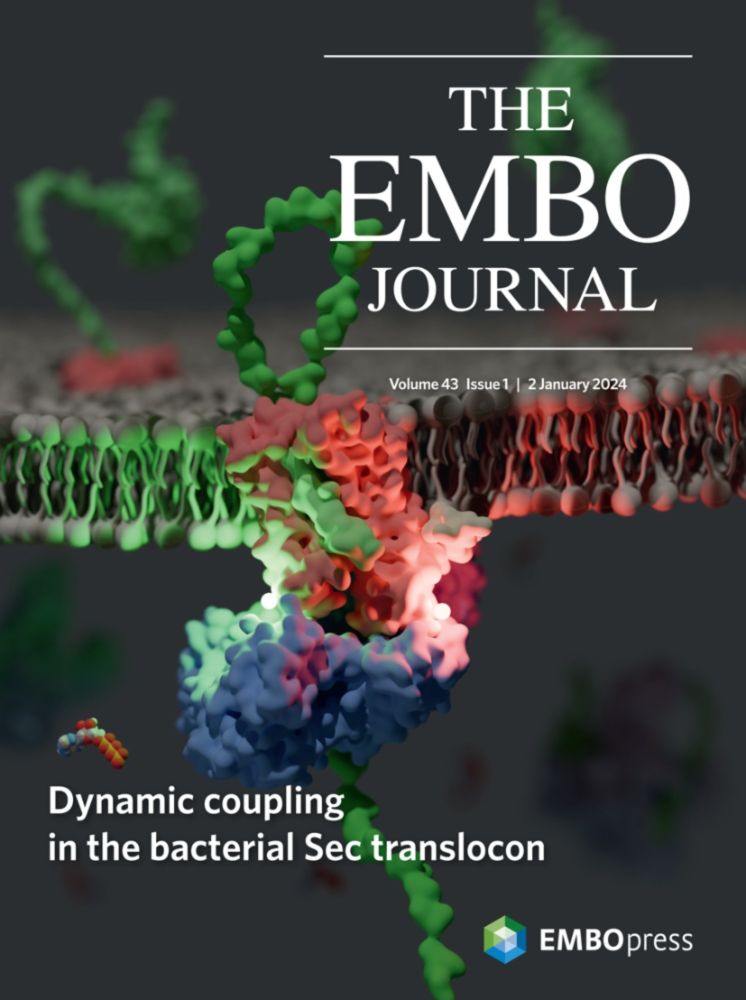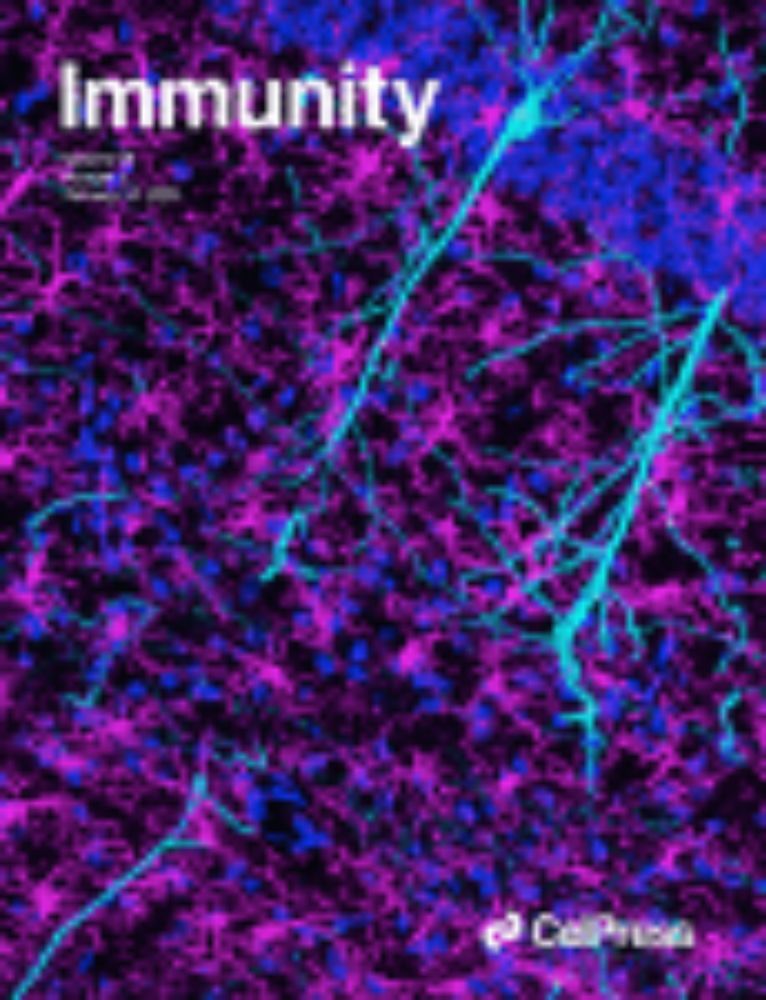I was Chair of @biologists.bsky.social when we started this initiative, the brainwave of the @stevenkelly.bsky.social
It was an imaginative idea and I am thrilled to see this landmark
Remember: @biologists.bsky.social are the goodies in scientific publishing!
22.09.2025 19:21 — 👍 30 🔁 9 💬 0 📌 0

We can make the flexibility of a model match the hypothesis being tested -- more flexibility is not always better, if it prohibits rejection of the hypothesis. Here is one simple case involving T cells where it made a difference!
www.biorxiv.org/content/10.1...
08.09.2025 18:06 — 👍 5 🔁 1 💬 0 📌 0
If you're a postdoc interested in starting your own group, please consider the Dunn School at Oxford, UK.
It's a fantastic department and university for molecular immunology and all aspects of immune research!
04.08.2025 17:58 — 👍 10 🔁 5 💬 0 📌 0
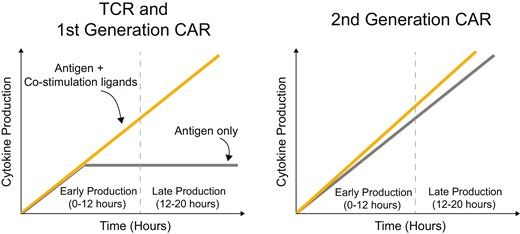
Temporal control of cytokine production is lost in 2nd-gen CAR-T cells, says Patel et al. This could be key to understanding their efficacy and toxicity in cancer immunotherapy. 🧬
🔗 https://bit.ly/4lOLicw
#CancerImmunotherapy
17.07.2025 14:25 — 👍 5 🔁 1 💬 0 📌 1
Thanks to our funding, collaborators, constructive reviewers, and for the very efficient process at Immunology & Cell Biology!
31.05.2025 08:54 — 👍 1 🔁 0 💬 0 📌 0
By comparing the advantages and limitations of each platform, we provide a framework to choose the most suitable system to study signal integration in both basic and translational contexts.
31.05.2025 08:54 — 👍 1 🔁 0 💬 1 📌 0
A recently developed CombiCell system enables easy manipulation of ligands while conserving key biophysical properties.
31.05.2025 08:54 — 👍 1 🔁 0 💬 1 📌 0
In contrast, solid surfaces or supported lipid bilayers allow easy manipulation of ligands but lack the biophysical properties of cells, such as softness, a glycocalyx, and/or ligand mobility.
31.05.2025 08:54 — 👍 1 🔁 0 💬 1 📌 0
Although genetically modified antigen-presenting cells (APCs) offer the most physiological system, manipulating their ligands is difficult and slow.
31.05.2025 08:54 — 👍 0 🔁 0 💬 1 📌 0
We review and compare the available platforms, focusing on T-cell recognition.
31.05.2025 08:54 — 👍 1 🔁 0 💬 1 📌 0
Since they encounter a huge variety of normal and abnormal cells, they experience many different combinations and concentrations of ligands.
Understanding immune responses therefore requires platforms that enable ligands to be easily manipulated.
31.05.2025 08:54 — 👍 1 🔁 0 💬 1 📌 0
Immune cells interact directly with other cells and make decisions by integrating information from many different receptor–ligand interactions at these cell–cell interfaces.
31.05.2025 08:54 — 👍 1 🔁 0 💬 1 📌 0
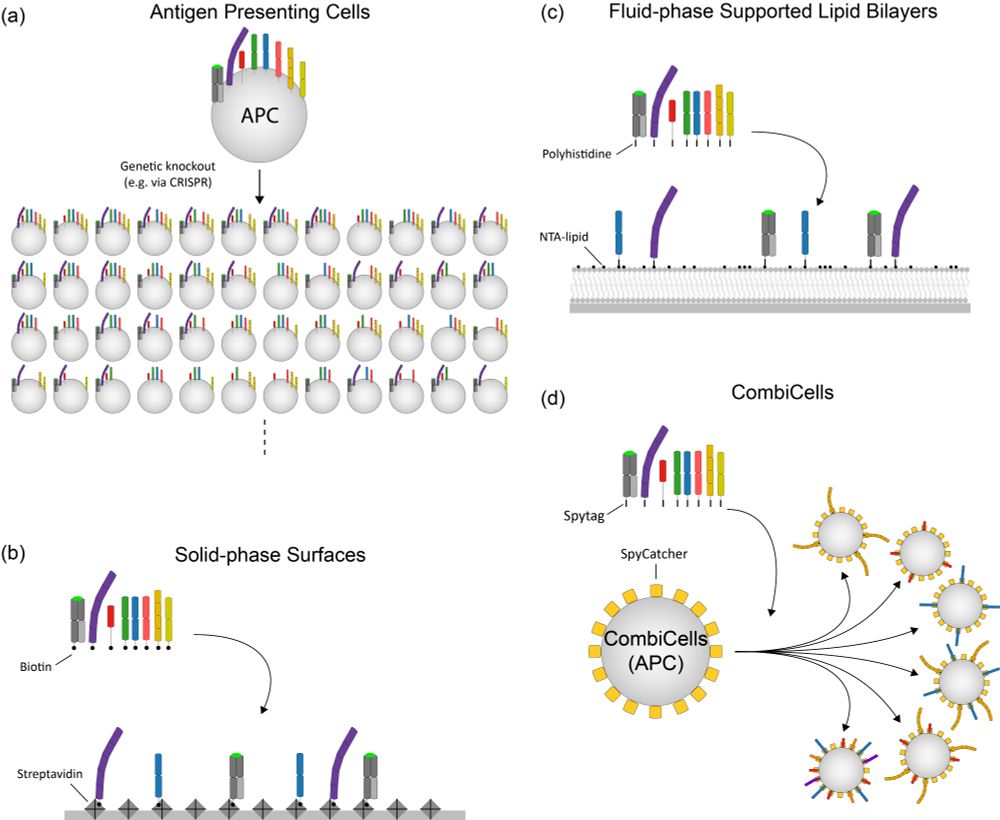
Our new review article led by Jordan Kramer:
Platforms for studying cell–cell recognition by immune cells
onlinelibrary.wiley.com/doi/10.1111/...
31.05.2025 08:54 — 👍 19 🔁 6 💬 1 📌 0

biomembrane-days-2025.mpikg.mpg.de
📢 Registration is open for the Biomembrane Days 2025!
🔗 biomembrane-days-2025.mpikg.mpg.de
A top-notch lineup of speakers, 120 posters, 200 scientists.
📜Submit an abstract by July 14
🏆3 Poster prizes
⚠️Limited spots-previous events were fully booked!
#BiomembraneDays2025 #Biophysics #CellMembranes
09.05.2025 09:10 — 👍 22 🔁 8 💬 1 📌 2
Sofia has been exploiting the platform to study T cell signal integration by co-signalling receptor/ligand interactions.
01.04.2025 16:45 — 👍 2 🔁 0 💬 1 📌 0
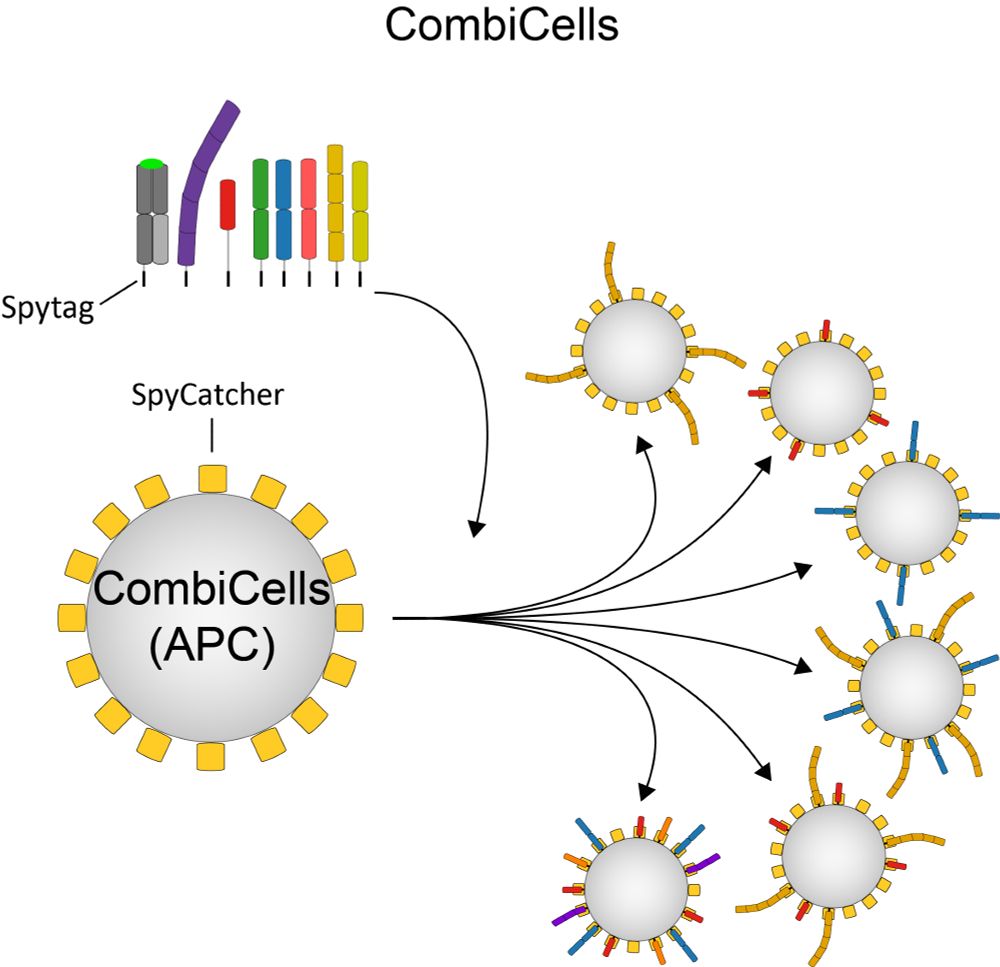
CombiCells allow combinatorial display of cell surface ligands
www.nature.com/articles/s41...
A new Tools of the Trade article from Nature Reviews Immunology by Sofía Bustamante Eguiguren in our lab highlights the CombiCell platform to combinatorially display and titrate many cell surface ligands
01.04.2025 16:45 — 👍 7 🔁 3 💬 1 📌 0
The molecular reach of antibodies crucially underpins their viral neutralisation capacity
Our work on measuring and understanding the role of molecular reach on antibody function is now part of a list of editor's pick manuscripts:
www.nature.com/collections/...
06.03.2025 07:28 — 👍 3 🔁 2 💬 0 📌 0
A fantastic EACR conference that focuses on all aspects of immune responses to cancer!
Barcelona - May 2025
22.02.2025 07:31 — 👍 1 🔁 0 💬 0 📌 0

📢 LAST CHANCE to submit your abstracts for BSI Oxford and
@immunologyoxford.bsky.social's #OIS25 Symposium
This is your opportunity to take part in this celebration Oxford's outstanding #immunology research 🔬
Submissions are open until midnight on Friday 7th Feb 👉 bit.ly/4elJmnG
06.02.2025 13:45 — 👍 3 🔁 3 💬 0 📌 0

📢 Abstract submission for BSI Oxford and @immunologyoxford.bsky.social 's #OIS25 Symposium closes NEXT WEEK (7 Feb)
Don't miss your chance to take part in this celebration of the outstanding #immunology research happening across Oxford 💫
Submit your abstract here 👉 bit.ly/4elJmnG
30.01.2025 14:53 — 👍 8 🔁 9 💬 0 📌 0

How to Apply and Funding
Two weeks to go until the application deadline for ILESLA. If you or anyone you know would benefit from full funding to carry out a PhD in Life and/or Environmental Science please visit/refer to our website page iles.web.ox.ac.uk/how-apply where you can see open day videos and get full guidance.
16.01.2025 14:10 — 👍 20 🔁 27 💬 1 📌 20

We just can't stop recruiting!
Associate professor in cell and molecular biology @dunnschool, with a preference for immunology, inflammation and/or infection - all defined broadly
Come and be our colleague
Deadline 28 Feb, please spread the word
www.path.ox.ac.uk/vacancy/asso...
14.01.2025 16:52 — 👍 48 🔁 59 💬 0 📌 1
The OT-I TCR is often criticised as being very high-affinity and displaying unusual behaviour compared to other TCR transgenics. New work from @tcell.bsky.social shows this might not be the case. Will I still use OT-I and all the wonderful tools associated with it? Yes I will!
16.01.2025 10:34 — 👍 12 🔁 3 💬 0 📌 0
This was a fantastic effort led by Anna Huhn and a collaboration with @gerardlab.bsky.social. We thanks for our funders @wellcometrust.bsky.social Wellcome Trust and our fantastic department @dunnschool.bsky.social Dunn School
16.01.2025 08:58 — 👍 2 🔁 0 💬 0 📌 0

Taken together, our 3D affinities enable us to resolve discrepancies between the OT-I and other TCRs used in the literature.
16.01.2025 08:10 — 👍 0 🔁 0 💬 1 📌 0


Our results underline the ability of T cells to effectively gauge proxies for 3D affinity within the 2D cell-cell interface, which is predicted by a model whereby the TCR/pMHC interactions are shielded by molecular forces (e.g. Pettmann et al (2023) EMBO J; Schrangl et al (2024) bioRxiv)
16.01.2025 08:10 — 👍 0 🔁 0 💬 1 📌 0

We find high correlations between 3D affinities and 2D affinities, and with T cell responses. We don’t find a sharp affinity threshold but rather imperfect antigen discrimination. We show that the kinetic proofreading mechanism can explain this level of discrimination with high antigen sensitivity.
16.01.2025 08:10 — 👍 0 🔁 0 💬 1 📌 0

We find that the OT-I interaction with its foreign OVA antigen has physiological affinity (KD = 34 uM) with a short half-life (<1 s) and has a remarkably low affinity to positively selecting peptides (KD > 2000 uM).
16.01.2025 08:10 — 👍 0 🔁 0 💬 1 📌 0
International research group (Berlin & Houston) led by @dlwagner.bsky.social
CAR-T cells | Non-viral genome engineering | CRISPR | Precision editing | Large knock-ins | Integrases |
Chief Editor of Nature Biomedical Engineering. Ph.D. Previously at Nature Methods. @rita_strack on the place formerly known as twitter.
studying the role of autoimmunity in post-infectious syndromes 🦠 | Jane Coffin Childs Fellow | Stanford immunology postdoc—Robinson Lab • Harvard neurobiology PhD, 2024 🧠 • scientist, writer, & teacher • 110/100 books in 2025 📚 she/her
Advancing our understanding of human autoimmunity and transforming patient lives through bold, collaborative, and translational science.
Learn more: www.coltonconsortium.org
Researchers at the University of Birmingham, Centre for Liver and Gastrointestinal Research, UK
Principal Scientist Bioinformatics @ Gilead Sciences, Oxford UK
Senior Scientist, Bioinformatics @ Gilead Sciences | Bioinformatics | Computational biology | Fibrosis | Immunology | Cardiovascular disease
https://scholar.google.co.uk/citations?hl=en&user=QgA-ngcAAAAJ&view_op=list_works&sortby=pubdate
Postdoc at Stanford
Immune Tolerance | Memory B Cells
Immunologist || Exploring the myeloid-CAR T network || Stanford
Associate Professor at Warwick Medical School and Visiting Lecturer at the University of Oxford
❤️RNA viruses, single-molecule microscopy and diagnostics
Immunology of CD8 T cell responses @Karolinska Institute, @University of Regensburg and @Leibniz Institute for Immunotherapy
gerlachlab.com
The Canadian Society for Immunology strives to support #immunology research and education across Canada 🔬🇨🇦
Account run by the CSI Trainee Engagement Committee
https://www.csi-sci.ca
Professor of Immunology 🇳🇱 🇬🇧
Lisbon, 🇵🇹
#Immunology
Time for Science, not silence
https://scholar.google.co.uk/citations?user=7vG1jLIAAAAJ&hl=en
https://orcid.org/0000-0002-1478-9562
threads.net/@marc_veld
mastodon.online/@marc_veld
Postdoc in Oxford working with spatial and single-cell proteomics
Single Molecule Biophysics
Quantum Photonics
Postdoctoral fellow in the Neeson lab @petermaccc.bsky.social | Alum PhD in the Heath lab @thedohertyinst.bsky.social @UnimelbMDHS
Passionate about Immunology and Immunotherapy
Associate professor and head of peperzaklab.com, focus on cell death regulation, plasma cell & B cell malignancies, immunology and CART @CTI, UMC Utrecht.
Transforming routine immune profiling to power the future of medicine. I3H builds on Penn Medicine’s pioneering legacy in immunology to advance discovery across disciplines. Perelman School of Medicine, University of Pennsylvania
🔗 www.med.upenn.edu/i3h




